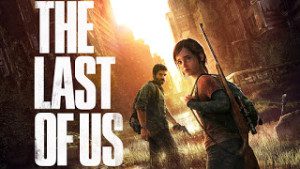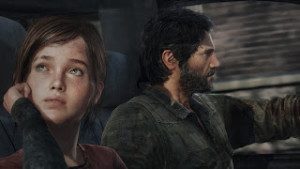Warning: This article is spoiler-city. If you have not finished playing The Last of Us, please do not read any further.
Spoilers! Spoilers! Spoilers!
Seriously…you were warned!

It is rare that a video game has a story so beautifully told that it gains critical acclaim and a massive fan-base just based on the story alone. The Last of Us is one of those exceptional gems that show the world that video games can be fun and intelligent. One of the most interesting aspects of the game is its theme. Many have been scratching their heads at the end of the game, wondering what the implications of Joel’s decision may actually be. He chooses to save Ellie rather than save humanity. Is he being selfish? Was it a bad choice on his part? Judging by how Naughty Dog presents the rest of the story, Joel actually became one of the few moral characters in the story. The Last of Us demonstrates that traveling down the slippery slope of so-called “sacrifice” will only cause humanity to lose itself.
In the early parts of the game, the gamer witnesses a police-state with martial law. There is no freedom; people are forced to live and work in a place where their every move is watched. Checkpoints are everywhere. The people who live in these areas are forced to comply in order to receive food and the illusion of safety. Of course, the military is doing this in order to “protect” the citizens there. However, in doing so, it has completely destroyed everyone’s freedoms. Under this militaristic rule, all rights are taken away. The military can kill anyone for any reason at any time. Under the guise of “safety,” people have given up all of their freedoms. As the player can see by watching Joel and Tess’s actions early on, people do not naturally want to live in this manner. Even in the beginning segments, The Last of Us demonstrates that survival situations can bring out the worst in the way a government will treat its people.
As the player continues to follow Joel and Ellie, there are several factions that are introduced. The first is the group of hunters that patrol down-town Pittsburgh. This group will kill anyone they see in order to salvage clothes, shoes, weapons, food, and whatever else they can scrounge. The group labels outsiders are “tourists” to perhaps make it seem like it’s okay to kill in non-defensive situations. Besides, they are just doing it to survive, right? Joel even mentions to Ellie that he was in a group like this in the earlier years because that was what he had to do to survive. Another group that Joel and Ellie come across are the cannibals run by David, a charismatic but highly crazy guy. When justifying what his group is doing, he uses the “we’re just surviving, like you are” argument to Ellie. Of course, Ellie completely rejects that reasoning. The player sees in these sections groups of people who have lost their humanity and their souls because they were “just surviving.”

At the end, Joel is faced with a dilemma: save Ellie and give up a possible cure to the infection or sacrifice her in order to help humanity. Some may argue that Joel’s decision to save Ellie was selfish and short-sighted, that he wanted to save her because she symbolizes the daughter that he lost twenty years earlier. This is not the case, though. Killing Ellie was no guarantee that they would have found a cure. If Joel would have sacrificed Ellie, it would bring up the question: How many need to be sacrificed in order to “save” humanity? The Fireflies wanted to practice altruism, but what is the tolerable number of little girls that need to be killed in order to help the rest of the human race? One? Ten? A hundred? A thousand? It becomes a slippery slope when people start sacrificing others in the name of “saving the human race,” especially when Ellie didn’t even have a choice in the matter. She was never asked. That individual choice was taken away from her.
The Last of Us thematically looks at the question: Where exactly does it stop? How many individual rights and freedoms need to be given up? Self-defense aside, is surviving worth giving up your soul for extra clothing and food? How many people need to be sacrificed in order to help the whole? At the end of the game, Joel becomes a symbol for “enough is enough.” His decision to take Ellie marks an end to the slippery slope that was highlighted again and again in the game. Humanity does need a cure for the infection, but at what cost? What it really needed was a cure from the thinking of “survival at any cost.” Despite the infection, people wererebuilding. The player can see that with Joel’s brother Tommy and his group. This group was a beacon of hope. They emphasized the re-establishment of the family and the focus on working together to achieve a goal, while still keeping everyone’s individual liberties. Joel’s final decision to bring Ellie back to that group highlights the final message in The Last of Us: the end of the slippery slope of moral decay in world that had been decaying for decades.

